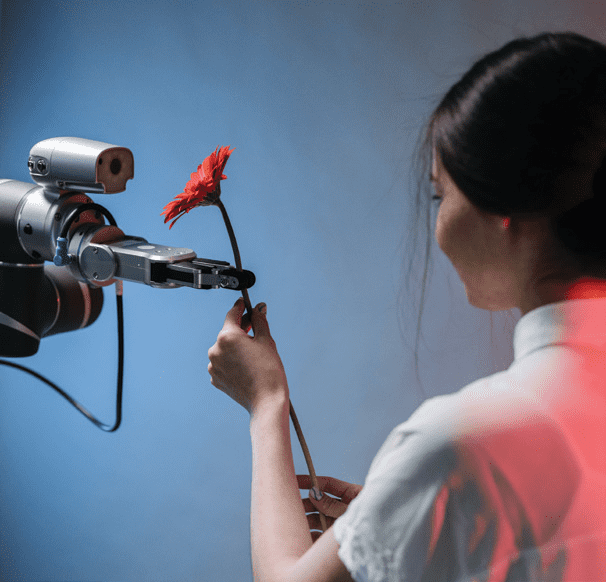No doubt artificial intelligence will change our life in the future – but while there may be scary visions of robots taking over, let’s take a look instead at how AI (artificial intelligence) assists human beings in their work and brings about better results.
A study published in The Lancet Digital Health found out that radiologists assisted by AI can screen for breast cancer more successfully than they do when they work alone. That same AI also produces more accurate results in the hands of a radiologist than it does when operating by itself.
The large-scale study looked into the performance of breast cancer screening of radiologists alone, of AI, and a combination of the two. And the results show that human radiologists, assisted by AI, performed best.
The hope is that such AI systems could save lives by detecting cancers doctors miss, free up radiologists to see more patients, and ease the burden in places where there is a dire lack of specialists.
The software being tested comes from Vara, a startup based in Germany that also led the study. The company’s AI is already used in over a fourth of Germany’s breast cancer screening centers and was introduced earlier this year to a hospital in Mexico and another in Greece.
The Vara team, with help from radiologists at the Essen University Hospital in Germany and the Memorial Sloan Kettering Cancer Center in New York, tested two approaches. In the first, the AI works alone to analyze mammograms. In the other, the AI automatically distinguishes between scans that appear normal and those that raise a concern. It refers the latter to a radiologist, who would review them before seeing the AI’s assessment. Then the AI would issue a warning if it detected cancer when the doctor did not.

The second approach – doctor and AI working together – was 3.6% better at detecting breast cancer than a doctor working alone, and raised fewer false alarms. It accomplished this while automatically setting aside scans it classified as confidently normal, which amounted to 63% of all mammograms. This intense streamlining could slash radiologists’ workloads.
So far, attempts to fully replace radiologists with AI have failed. A 2021 review found that in 34 of 36 studies, the AI did worse than a single radiologist at screening for breast cancer from mammograms. All 36 were less accurate than the consensus of two radiologists, which some countries require.
There are many more improvements in the diagnosis and treatment of illnesses where AI can help. However, even in the field of agriculture, AI can assist farmers to make better decisions on which crops to plant, how to fertilize and when to harvest.
Analyzing market demand, forecasting prices, and determining the optimal time for sowing and harvesting are key challenges farmers can solve with AI.
AI can also gather soil health insights, provide fertilizer recommendations, monitor the weather, and track the readiness of produce. All of this enables farmers to make better decisions at every stage of the crop cultivation process.
One particular farm management trend – precision agriculture – can help farmers grow more crops with fewer resources, an approach that can be crucial since water is a scarce resource in many parts of the world. AI can help farmers analyze the soil, compare different crops, maximize yields and minimize spending. With data available, they can identify areas that need irrigation, fertilization, or pesticide treatment. Also, innovative farming practices like vertical agriculture may help increase food production while minimizing the use of resources. The result is reduced use of herbicides, better harvest quality, higher profits, and significant cost savings.
As often happens, it all depends on how we use technology for the common good.
Susanne Janssen, with material from MIT News
(Living City, USA)




